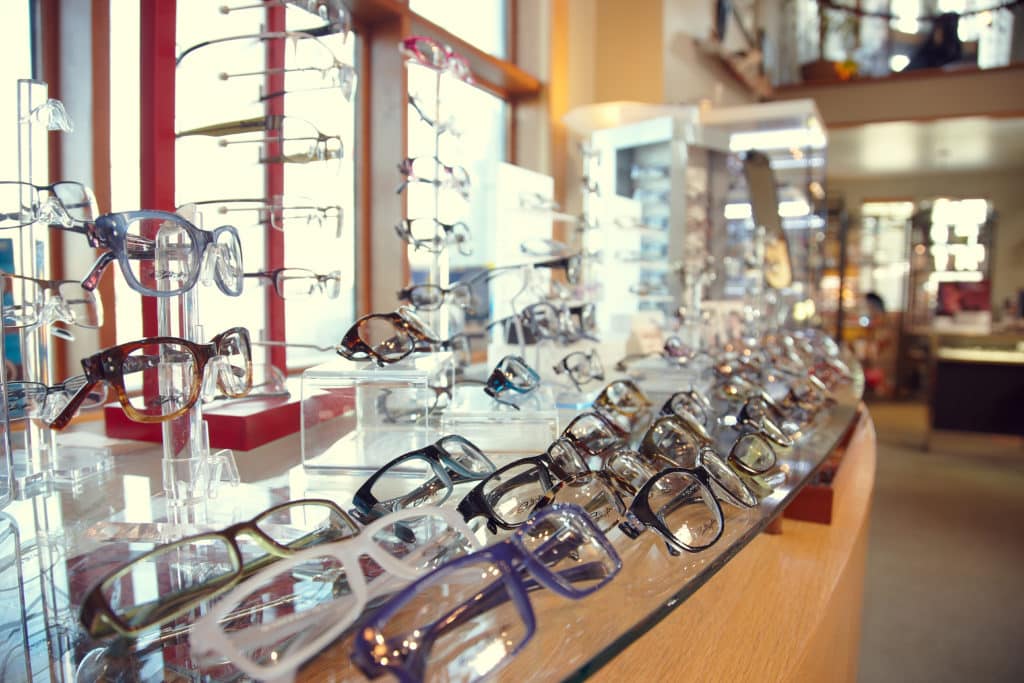
Getting new glasses or prescription lenses for the first time can be a mix of emotions. Some patients may feel excitement about something new and improving their vision, while others will experience nervousness about the unknown. Wearing glasses is common for lots of children and adults to help correct eye damage or genetic eye conditions. The timeline it takes to adjust to glasses can vary from person to person. Some will take longer to get over disorientation than others. Especially when it comes to the feeling on your face, how they make your eyes feel, and how you do your makeup around them.
It is typical for eyes to take around 1-2 weeks to adjust to glasses or contacts. If you are experiencing some discomfort like nausea or tired eyes, this is completely normal. If these symptoms persist for multiple weeks, make sure to talk to your eye doctor about a solution. As your brain adjusts to glasses with a new way of seeing, any symptoms or pain should slowly dissipate.
Adapting To Wearing Glasses
No matter the age, gender, or lifestyle of a patient there will be an adjustment period to wearing lenses. No matter if you are wearing glasses or contacts, your brain will need time to learn how to see with the lenses and adjust to wearing frames.
The best way to adjust to glasses is to wear them consistently. Wearing your glasses while attending school, working at the computer, or driving will help your eyes adjust much quicker. If you put off wearing your glasses on a daily basis, it will make it harder for your body to adjust.

Occasionally after getting new glasses, you may find that the prescription is slightly off. This can make it hard for your eyes to focus and cause disorientation. Your eyes will have to work harder to see and you could experience a headache and eye soreness.
Can I Drive After Getting Glasses Or Contacts?
On the day of your eye appointment, the doctor may dilate your eyes. It is not safe to drive while your eyes are dilated or when you have new glasses. You should give your eyes a little time to adjust to glasses before driving heavy machinery. Typically the next day, your eyes are adjusted enough to drive, but if your vision is still blurry, avoid driving if possible.
Typical Discomfort You Can Experience When Wearing Glasses
Every patient is different, but there are common symptoms and pains that can come when your eyes adjust to glasses. These include:
- Headaches
- Tired Eyes
- Sore Eyes or Nose
- Nausea
- Dizziness
- Visual changes
- Sensitivity to Light
- Changes in Depth Perception
If you are experiencing extreme pain or discomfort when closing or opening your eyes, call your doctor immediately. When you adjust to glasses, this could cause you to feel disoriented, but extreme pain can be a major cause for concern. Working with your optometrist to find the right prescription and avoid eye irritation will help correct your vision while avoiding eye diseases.
Adjusting Your Vision To Specialized Lenses
Progressive or specialized lenses like bifocals, can take slightly longer to get used to. Because different parts of the lenses have different focal points, your eyes need to switch between lenses for different tasks. Your eyes may actually feel some relief from specialized lenses because the vision is being corrected. Straining your eyes to cook or read without glasses can cause more pain than wearing the glasses will.
Talk To Your Eye Doctor If Problems Persist

If any of the symptoms you are experiencing are extremely painful or persist for longer than a couple of weeks, you should plan to talk to your optometrist. Most discomfort you experience while you adjust to glasses is not a sign of any serious issues, but addressing anything sooner rather than later can help limit damage to the eyes.
Wolcott Optical offers glasses, safety glasses, contacts, and sunglasses for patients. We have been in the optometry business for over 75 years, so we know how to provide quality eye care to those in Salt Lake City. We guarantee that you will be satisfied with our customer service and receive better eyesight after working with our family-owned company.
